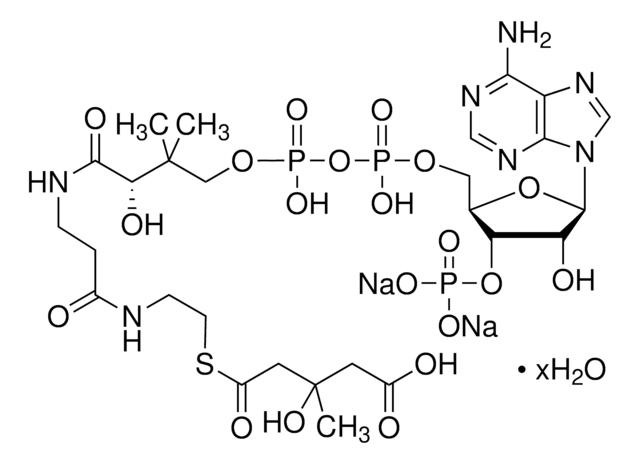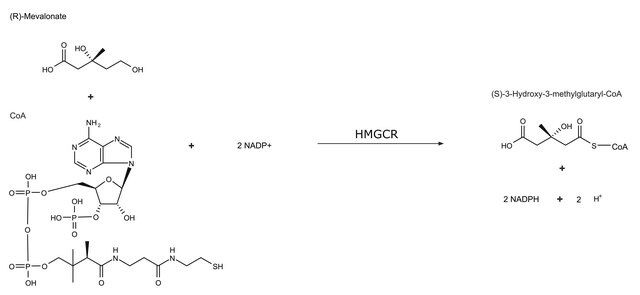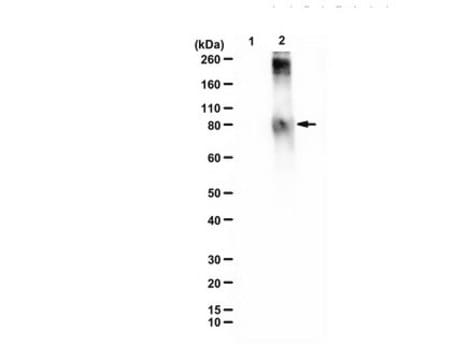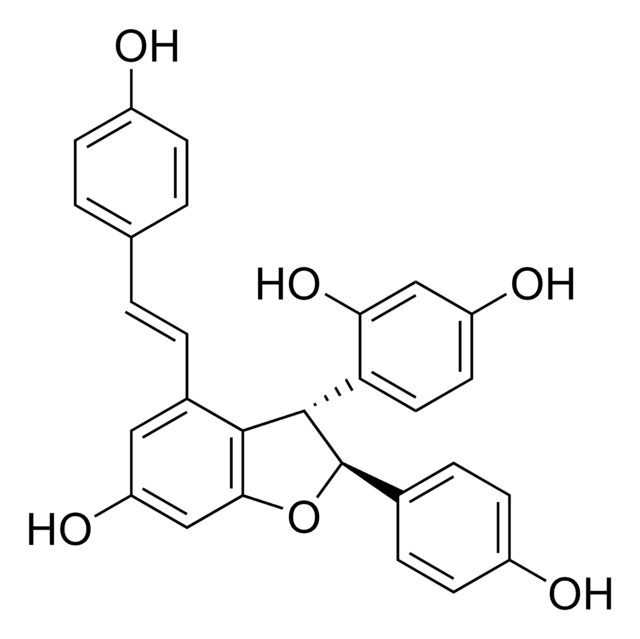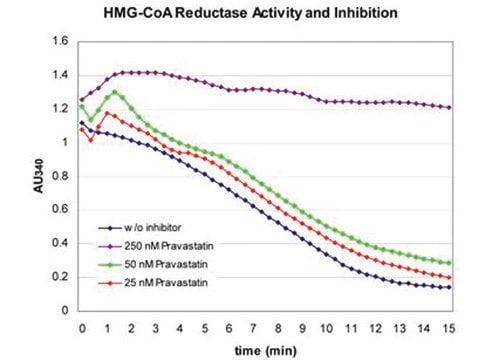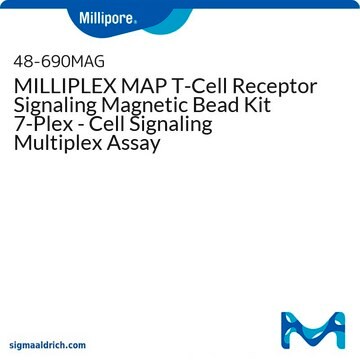ABS2108
Anti-HMG-Lysine
from rabbit
Synonym(s):
3-hydroxy-3-methyl-glutary-Lysine
Sign Into View Organizational & Contract Pricing
All Photos(2)
About This Item
UNSPSC Code:
12352203
eCl@ss:
32160702
NACRES:
NA.41
Recommended Products
biological source
rabbit
antibody form
affinity isolated antibody
antibody product type
primary antibodies
clone
polyclonal
species reactivity (predicted by homology)
all
packaging
antibody small pack of 25 μL
technique(s)
western blot: suitable
isotype
IgG
target post-translational modification
unmodified
General description
Acetylation of lysine residues in proteins has emerged as an important mechanism in regulation and coordination of normal and pathophysiological cell metabolism. Lysine HMGylation is a newer post-translational protein modification that occurs under normal basal conditions. In murine models of HMG-CoA lyase deficiency, higher levels of protein lysine HMGylation has been observed. This rabbit polyclonal antibody specifically detects chemically modified proteins containing hydroxymethylglutaryl-lysine modifications, but not unmodified proteins. (Ref.: Wagner, GR et al. (2017). Cell Metabolism 25(4); 823-837).
Specificity
This rabbit polyclonal antibody detects BSA-conjugated 3-hydroxy-3-methyl-glutaryl (HMG)-Lysine. It recognizes BSA chemically modified to contain HMG-lysine modifications, but not unmodified BSA.
Immunogen
3-hydroxy-3-methyl-glutaryl (HMG)-Lysine conjugated to BSA.
Epitope: unknown
Application
Anti-HMG-Lysine, Cat. No. ABS2108, is a rabbit polyclonal antibody that detects hydroxymethylglutaryl-lysine conjugated proteins and has been tested for use in Western Blotting.
Research Category
Signaling
Signaling
Western Blotting Analysis: A representative lot detected HMG-Lysine in Western Blotting applications (Wagner, G.R., et. al. (2017). Cell Metab. 25(4):823-837; Anderson, K.A., et. al. (2017). Cell Metab. 25(4):838-855.e15).
Western Blotting Analysis: A 1:500 dilution from a representative lot detected HMG-Lysine in HMG-BSA conjugate (Courtesy of Dr Kristin Anderson from Duke University).
Western Blotting Analysis: A 1:500 dilution from a representative lot detected HMG-Lysine in HMG-BSA conjugate (Courtesy of Dr Kristin Anderson from Duke University).
Quality
Evaluated by Western Blotting with HMG-BSA conjugate.
Western Blotting Analysis: A 1:500 dilution of this antibody detected HMG-Lysine in HMG-Lysine-BSA conjugate.
Western Blotting Analysis: A 1:500 dilution of this antibody detected HMG-Lysine in HMG-Lysine-BSA conjugate.
Target description
~75 kDa observed (BSA conjugate). Uncharacterized bands may be observed in some lysate(s).
Physical form
Affinity Purified
Format: Purified
Purified rabbit polyclonal antibody in PBS with 0.1% sodium azide.
Storage and Stability
Stable for 1 year at 2-8°C from date of receipt.
Other Notes
Concentration: Please refer to lot specific datasheet.
Disclaimer
Unless otherwise stated in our catalog or other company documentation accompanying the product(s), our products are intended for research use only and are not to be used for any other purpose, which includes but is not limited to, unauthorized commercial uses, in vitro diagnostic uses, ex vivo or in vivo therapeutic uses or any type of consumption or application to humans or animals.
Not finding the right product?
Try our Product Selector Tool.
Certificates of Analysis (COA)
Search for Certificates of Analysis (COA) by entering the products Lot/Batch Number. Lot and Batch Numbers can be found on a product’s label following the words ‘Lot’ or ‘Batch’.
Already Own This Product?
Find documentation for the products that you have recently purchased in the Document Library.
Alec G Trub et al.
Nature communications, 13(1), 2542-2542 (2022-05-11)
Statins are a class of drug widely prescribed for the prevention of cardiovascular disease, with pleiotropic cellular effects. Statins inhibit HMG-CoA reductase (HMGCR), which converts the metabolite HMG-CoA into mevalonate. Recent discoveries have shown HMG-CoA is a reactive metabolite that
Our team of scientists has experience in all areas of research including Life Science, Material Science, Chemical Synthesis, Chromatography, Analytical and many others.
Contact Technical Service